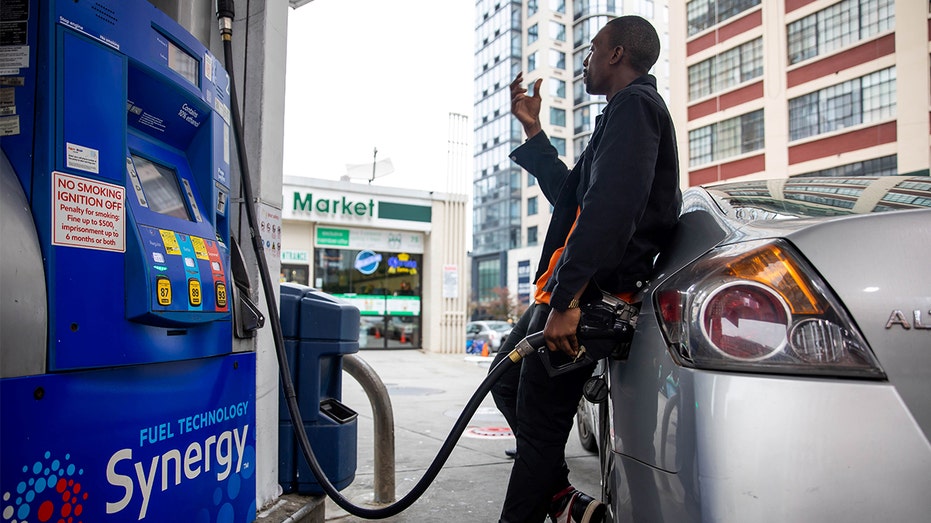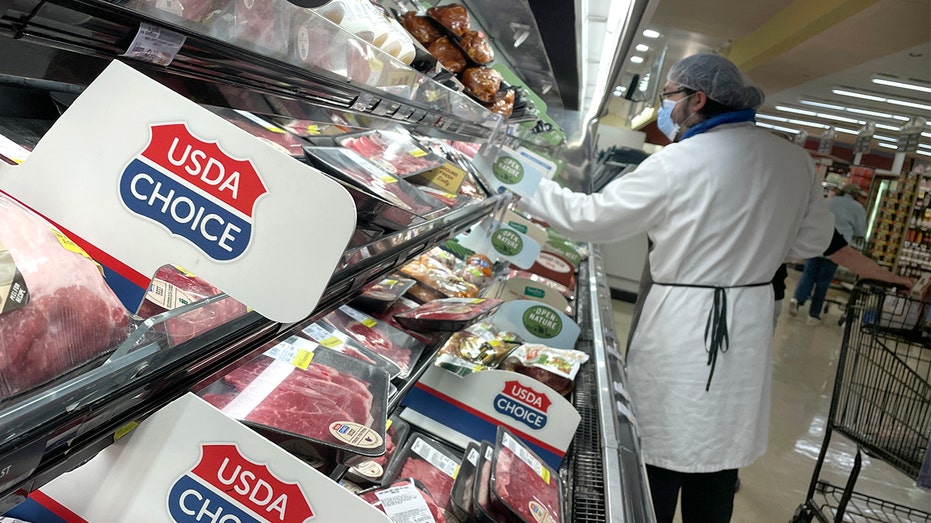Inflation crisis: Joe Biden's vs. Jimmy Carter's
How bad is current inflation compared to the 1970s?
Biden 'transitory' inflation claim in question amid continual price increases
Fox News contributor Liz Peek weighs in on inflation woes on 'The Evening Edit'
Continuing inflation that has gone on throughout 2021 without signs of slowing down has led to concerns that the United States could see a repeat of what happened in the 1970s under President Carter.
Under Carter, the U.S. experienced inflation and unemployment that were both in the double digits as a result of an oil price shock that began when Iranian oil workers went on strike.
The result was year after year of rising prices, perpetuated in part due to expectations of prolonged inflation which led to producers raising prices even more.
INFLATION WILL LIKELY GET WORSE BEFORE IT STARTS IMPROVING, GOLDMAN WARNS
Back then, inflation rose by an average of more than 11% in 1979 and nearly 14% in 1980. Today's inflation rate is not nearly as high, but five consecutive months of inflation above 5%, including 6.2% in October, is not a promising trend in comparison to the typical rate of 2%.
Today, inflation can be traced to a number of causes that could be viewed as temporary, which could keep people from panicking. But experts, as well as current and former officials, disagree over just how bad a problem it is.

A man fuels a car at a gas station in New York Oct. 13, 2021. (Xinhua via Getty Images / Getty Images)
"What is happening to activity and prices isn’t a repeat of the stagflation of the 1970s," wrote Paul Ashworth, chief U.S. economist at research firm Capital Economics.
Treasury Secretary Janet Yellen has repeatedly said that she expects inflation to return to acceptable levels of roughly 2% by 2022. She reiterated that stance during an appearance on the "Marketplace" radio show, arguing economic conditions will improve as the economy recovers from the COVID-19 pandemic.’
YELLEN: FEDERAL RESERVE WON'T ALLOW INFLATION TO REACH 1970S LEVELS
Former Obama administration economic adviser Larry Summers is a notable critic of Yellen’s stance, asserting last month that he felt there was a "less than a 50/50 chance" that she was correct about inflation declining by next year.
On Tuesday, Yellen downplayed concerns that inflation could spike to levels seen during the 1970s, asserting that the Federal Reserve would act before a surge of that magnitude could occur. The Fed took drastic measures to curb inflation then, raising interest rates to 20%.
President Biden and his allies say the inflation levels are transitory, and Biden has argued that his infrastructure and spending bills will help to address the underlying causes. The administration has claimed that infrastructure improvements will help supply chain woes, which will increase supply to meet demand, which has increased due to the pandemic and subsequent reopenings.
BIDEN POLICIES ‘DRAMATICALLY’ IMPACTED SUPPLY CHAIN CRISIS, INFLATION: FMR. MCDONALD'S USA CEO
Republicans, on the other hand, argue that the Biden administration’s economic policies are responsible for rising inflation. Gas prices have risen as Biden has taken a hard turn toward climate-centric policies that included nixing a major pipeline project.

Pork and beef products are displayed on a shelf at a Safeway store Oct. 4, 2021 in San Francisco, Calif. (Justin Sullivan/Getty Images / Getty Images)
"I must tell you, I don’t have a near-term answer," the president said regarding gas prices during a CNN town hall.
Sen. Joe Manchin, D-W.Va., has resisted Biden's Build Back Better social spending bill out of fear that spending at least $1.75 trillion will only lead to more inflation. In a Wednesday tweet, the senator was not optimistic about the problem getting better any time soon.
"By all accounts, the threat posed by record inflation to the American people is not ‘transitory’ and is instead getting worse," he wrote. "From the grocery store to the gas pump, Americans know the inflation tax is real and DC can no longer ignore the economic pain Americans feel every day."
The Wall Street Journal editorial board agreed, saying Wednesday that policies from Biden and other Democrats are exacerbating the problem, citing a "needless demand stimulus" that "has coincided with Biden policies that squeeze the supply of goods and services," plus unemployment benefits that discouraged people from returning to work, which "created the worst labor shortage in decades."

In an analyst note to clients on Sunday, Goldman Sachs economists warned that pandemic-induced disruptions in the global supply chain, which have caused congestion in ports and warehouses nationwide, could last longer than expected as surging demand struggles to keep up, meaning that inflation metrics will remain "quite high for much of next year."
GET FOX BUSINESS ON THE GO BY CLICKING HERE
The longer it goes on, however, the more likely it is to continue, Princeton economist Alan Blinder told NPR. Blinder was vice chairman of the Fed during the Clinton administration.
"If you're a business and you expect the inflation rate to be 5%, you're likely when it comes time to set the prices for the next year [to] go up 5%," Blinder said. "On the other hand, if you think inflation is going to be 1%, you're more likely to go up 1%," he added.
Fox Business’ Thomas Barrabi, Megan Henney, and Jonathan Garber contributed to this report.




















